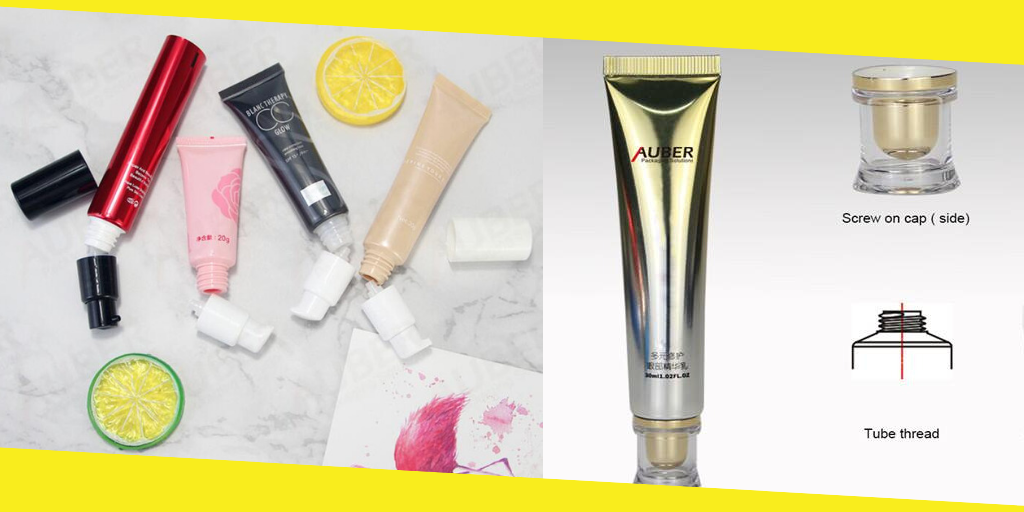A New Trend in Cosmetic Packaging – Rising Awareness of Environmental Protection

Contents
ToggleBioplastics, recyle& reduction
As a global clothing retail giant, H&M has long been involved in the beauty industry. In 2009, H&M launched the Hello Kitty series of lip gloss and other make-up. In the fall of 2015, H&M brought a new line of beauty-more than 700 products. H&M, which practices affordable and environmentally friendly concepts, uses recycled paper and plastic in packaging to minimize stress in the natural environment. Awareness of environmental protection has been a new trend in cosmetic packaging, which is one of the driving forces behind the brand’s sustainable development.
According to a recent study by Zero Waste, the beauty industry produces 12 million packages a year, using only one piece of cardboard, consuming 18 million acres of forest each year, up to 2050, globally. The good news is that many beauty brands, including many brands that are not advertised as organic or vegan, are taking action to launch recyclable and sustainable products. The young customer base has played a significant role in helping: According to Euromonitor data, consumers between the ages of 25 and 34 have the most awareness of buying environmentally friendly brands. So what are the current conditions and how can we go further? They will be shared as followed:
Appearance of Bioplastics
Ordinary plastics are still widely used in cosmetic packaging. Ordinary plastics, such as fossil fuel plastics (also known as petroleum-based polymers), come from oil or natural gas. One of the main problems associated with plastics is that it is not biodegradable, which means it takes about 100 to 1000 years to degrade when used in landfills. It also pollutes land, air and water. Plastic bags floating on the water have made aquatic life endangered.
Bioplastics are plastics derived from renewable biomass sources such as vegetable fats and oils, corn starch, straw, wood chips, food waste, and the like. Bioplastics can be made from agricultural by-products and second-hand plastic bottles and other containers that use microorganisms. Not all bioplastics are biodegradable and are more biodegradable than commercial fossil fuel derived plastics.By 2014, bioplastics accounted for approximately 0.2% (300 million tons) of the global polymer market.
Auber Packaging, a professional cosmetic tube manufacturer with more than 14 years’ experience, has lately successfully launched Lotion Tubes with Biodegradable Screw On Cap. Auber is an ISO9001 Certified contract manufacturer offering private label cosmetic tube packaging. Since 2004, Auber has been the leading cosmetic tube manufacturer in China. With the excellent equipments and raw materials from overseas, our stable qualified products have achieved high reputation from our clients all over the world. It’s popular among youngsters and they’d love to choose it to protect the environment. Its bamboo caps is another point.
Importance of Recycle and Reuse
Shiseido believes that to be accepted by the global markets, it is necessary to strengthen environmental-related initiatives and create a strong sense of crisis. The head of the class introduced that Shiseido is based on this understanding and “re-started actively taking environmental-related initiatives”in 2009. In 2010, Shiseido established the environmental standard for product design in the field of product design. In terms of containers and packaging, we are accelerating the adoption of initiatives such as expanding the use of plant-derived plastics.
When it comes to the environment, sugar cane-based tubes have a huge advantage over traditional tubes. Although one pound of petroleum-based polyethylene releases 2.5 kilograms of carbon dioxide, the amount of sugar cane needed to produce the same amount of polyethylene actually removes the same amount of carbon dioxide from the atmosphere.
Studies have shown that sugar cane absorbs carbon dioxide and fixes it in the soil at a faster rate than many other trees and plants. In addition, the plant does not release carbon dioxide when it is withered or harvested. The efficiency of sugar cane as a carbon sink makes it an ideal plant for the manufacture of green tubes.
Based on many considerations such as cost, efficiency and environmental protection, replacing traditional cosmetic packaging with recyclable packaging technology and models has become the consensus of the cosmetics industry.Urban Resource Group, a subsidiary of Canadian waste recycling company Canada Fibers, announced on June 28 that it has successfully made marine floating plastic waste into recyclable cosmetic containers.
Reduction
One of the added dangers of using bioplastics is that if people think it is less problematic than petroleum alternatives, then people may end up buying a lot of products. Turning to bioplastics still requires a reduction in waste.Best use: Bioplastics may be the best choice when reuse is not feasible.
“Box sharing” has made a major breakthrough in the cosmetics industry. As the world’s leading cosmetics company, L’Oreal has accelerated the deployment of the “box sharing” IBC sharing system after nearly half a year of testing and trial use. According to the agreement signed by the two parties, L’Oreal (China) will realize the circulation and sharing of packaging between the Group and upstream and downstream suppliers by means of the “box sharing” platform, and realize the turnover rate, utilization rate, loss rate, etc. Real-time sharing on data.
At present, companies have realized that excessive packaging will affect the environment. In order to avoid waste of resources, they have implemented environmental protection measures for product packaging. For example, PAN-TENE uses plant plastics made from sugar cane as a packaging material. Compared with traditional petroleum-based plastics, this material can reduce greenhouse gas emissions by 170% per ton; HERBORIST is more than 80%. The outer packaging of the products is made of recyclable degradable materials; the packaging and instructions of FANCL products are made of environmentally-friendly recycled paper, and the container is made of natural resin which can be completely decomposed.
As the competition of cosmetic packaging continues to heat up, many brands continue to innovate. The sustainability, renewable and green color of cosmetic packaging has also become a hot spot for big names. Auber, as a leading pioneer in sustainable cosmetic tubes, it is achieving more. Auber aims at providing environmentally friendly cosmetic tubes solutions.
Recommended For You
5 Powerful Marketing Strategies That You Should Steal
Most Inside
Most Inside offers high-quality recommendations and valuable updates to enhance all aspects of your life, providing premium guidance and enriching experiences.




